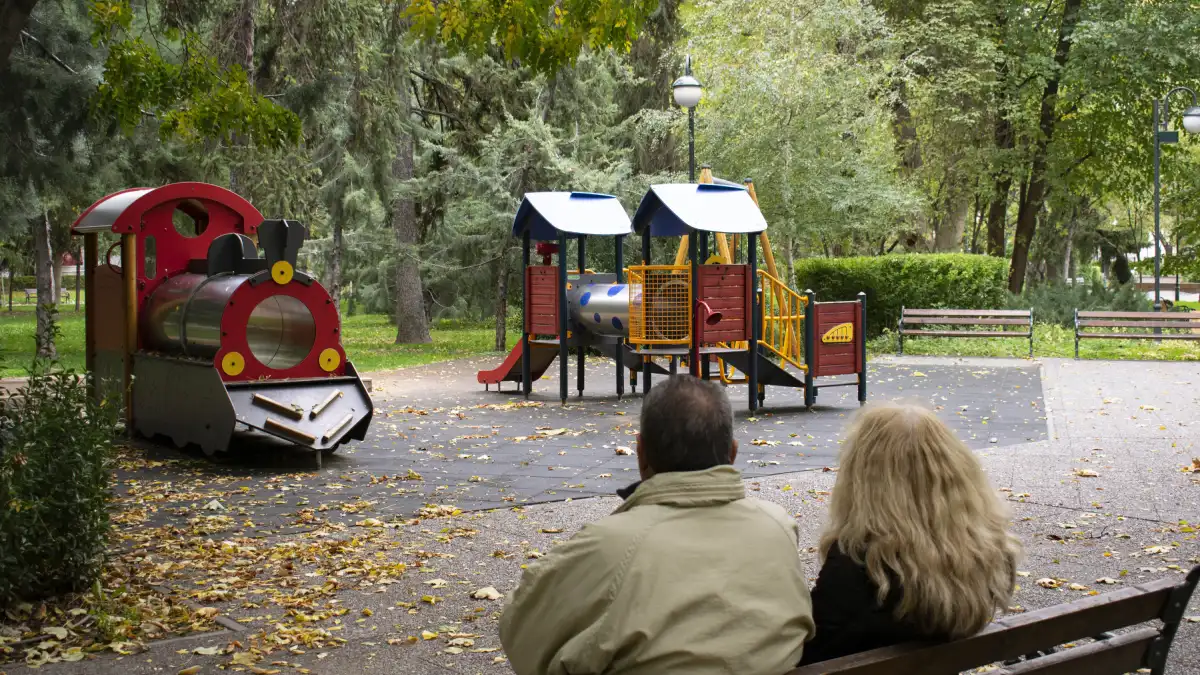From overpopulation panic to demographic collapse: a personal history
FALSE ALARMS – The Overpopulation Panic
In 1988, I was drafted into Austria’s mandatory military service — a rite of passage for any able-bodied male who hadn’t dodged it with art school or a conveniently timed diploma. I was 18, fresh out of chef training, and got posted to Allentsteig, the largest military exercise ground in Western Europe. A Nazi leftover — vast, overbuilt, and absurdly oversized — the Austrians had trimmed it down but kept it functional. Foreign armies rented it for live artillery drills, because apparently Austria’s best export was open space and plausible deniability.
After basic training, they threw me into kitchen duty. We were called “system sustainers,” which is military code for useful but expendable. Our mess hall was built to feed a small army, but most days there were only 150 souls to nourish. Then, during the big exercises, thousands of soldiers poured in — a pan-European buffet of uniforms and bad accents — and the ovens would glow white-hot.
The upside? I met everyone. Every age, every social background. And since I wasn’t the type to get blackout drunk or wax poetic about car engines, I spent my downtime talking. Arguing. Observing. One night in the rec room, between hands of Schnaps and existential dread, we stumbled into that beloved panic of the era: overpopulation.
Let me set the scene. This was the late Cold War. We grew up with mushroom clouds in the weather forecast and NATO vs. Warsaw Pact as background noise. But there were other specters too — subtler, slower. Overpopulation was one of them. The Club of Rome had infected every household with their 1972 screed The Limits to Growth. Paul Ehrlich was on every newsstand, grimly warning that mankind was about to breed itself off the face of the planet. We’d run out of food. Out of oil. Out of air. And, in the best tradition of late 20th-century hysteria, the media responded by printing even more of it.
China, in particular, loomed like a ticking demographic time bomb. One billion soon-to-be marching stomachs, ready to spill over the borders and devour our resources. We called it the Yellow Peril in whispers, but nobody dared admit it out loud.
Disaster was the fashion. Climate had yet to fully monopolize the doom market. But famine, collapse, pollution, and human excess made for excellent cocktail party fodder.
Now, I wasn’t buying it. Even at 18, something in me recoiled at the apocalyptic consensus. So I said so. I dropped a conversational grenade in that rec room: the overpopulation panic was vastly overstated. We weren’t going to run out of space. Or resources. And more importantly, I didn’t believe the numbers. I said outright: populations would shrink. And soon.
I pointed out what no one wanted to hear: many countries were already below replacement rate, and immigration was papering over the cracks.
Of course, I was laughed at. Patronized. I’d clearly been dropped on my head. But I held my ground.
Turns out, the cook was right. The prophets were wrong.
How Immigration Delayed the Reckoning
Then came 1989, and the Eastern Bloc cracked open. Suddenly, Austria had more people than it knew what to do with — Slavs, Magyars, and Balkan escapees flooded in, desperate and eerily familiar. They looked like us, spoke a dialect or two away from us, and adapted fast. Within a few years, you couldn’t tell who came from Graz and who came from Gdańsk.
And for a while, it worked. The numbers ticked upward. Cities felt full. Schools had children. Pensions were safe. The population bomb had been defused, apparently.
But it was a mirage.
What we didn’t see was that every developed country was hemorrhaging birthrates. Fertility fell below replacement in France, in Germany, in Japan, in us. But the West — smug, fat, and doped on cheap optimism — was too drunk on immigration to care. The newcomers looked like a solution. They masked the rot.
Politicians kept parroting the old lines about overpopulation. The data told a different story, but data doesn’t win elections — feelings do. And the feeling was: we’re crowded. Too many people. Too much chaos. Better not encourage more of it.
So we didn’t. And the silence grew.
Two Branches, Two Destinies
My hometown in Upper Austria once had a school and a kindergarten. Streets with children. Summer evenings thick with yelling and bicycle bells. Even then, I was told we were already light on kids. Today? It’s an open-air retirement home. A village of ghosts, with a bus stop no one uses.
Take my family. My father’s side — the Wachau winegrowers, Danube farmers — they bred like Catholic rabbits. Nine kids, seven kids, five kids, back to the 1700s. They were farmers. Children were assets — labor, legacy, insurance.
Then there’s my mother’s line: Southern Moravian city-dwellers. Craftsmen, clerks, petit bourgeoisie. Children there were few. One or none. Life was harder, margins tighter, and kids quickly became liabilities.
We still hold family gatherings. My father’s side fills a hall. My mother’s side could fit in a minivan.
This wasn’t about culture. It was about structure. Urban life penalizes fertility. It always has.
Why Civilizations Stop Reproducing
Peter Zeihan nailed it: in an agrarian society, children are free labor. In an urban society, they’re luxury items. Decorative. Burdensome. Sometimes regretted.
The math is cruel: more schooling, more cost, later independence. Kids stay longer. Work less. Contribute nothing until their twenties, maybe thirties. And parents? They get the bill, the stress, the lost time — and no social reward.
Once, to be a mother was to be someone. In my grandmother’s day, having many children earned you the Mother’s Cross. People had to salute her in public. She could skip queues. Older kids carried her groceries like little footmen. It was recognition. Status. A civic achievement.
Today? Motherhood is a liability. A professional handicap. A lifestyle choice — preferably one you don’t talk about at dinner parties.
Some states, like Israel, have retained that respect — and surprise, they have higher birthrates. Others — like Ceaușescu’s Romania — tried the hammer: forced births, outlawed abortion, terror in the name of fertility. The result was death, trauma, and back-alley surgery. You cannot coerce fertility. But you can make it desirable.
Here’s the rub: if society rewards motherhood with status, women will seek it. If it rewards childlessness, careerism, and cosmetic self-optimization, then cradles stay empty.
You can’t solve this with tax credits. Or posters. Or cheap moralizing. Culture leads; policy follows. And ours has chosen the path of sterile hedonism, neatly arranged on Instagram feeds.
What Happens When the Cradles Fall Silent
Civilizations that stop breeding don’t just vanish — they ossify. First comes stagnation, then decay. Youth brings risk, innovation, arrogance. Age brings memory and caution. You need both. Lose the young, and the whole thing grinds down.
And when we run out of young people, we try to import them. But those culturally close to us — Eastern Europeans, South Americans — are collapsing demographically too. So we look further. And further means stranger. Integration gets harder. Friction rises. Trust breaks down. Look around.
The economics? Worse. The inverted population pyramid — few workers, many retirees — is a slow-motion collapse. Japan is the future: a lonely, polite, impoverished eldercare ward. Old women queuing at food pantries. Men shivering through winters they once could afford.
“Robots will save us,” say the techno-optimists. Sure. Until they don’t.
Now imagine we actually settle space — an Earth-Moon economy, orbital stations, Mars colonies. The inner solar system could hold trillions. Where are these future pioneers going to come from? TikTok?
Back in law school, I pitched an idea. A real one. Pay mothers a salary starting with the second child. Not welfare — salary. Pensionable. Career-tracked. The more children, the higher the rank. With honors. Titles. Reserved parking. Line privileges. Mothers-only spaces. Combine money with status, not guilt. Turn parenting into prestige.
Because here’s the question: do we want our civilization to go the distance? Or do we gracefully bow out and let others take over?
In the film Idiocracy, the future belonged to the dumb because they bothered to breed. It was meant as satire.
But it might be a preview.




